Performing and Visual Artists in Our Bar Association
According to a joke, the difference between lawyers and accountants is that accountants know they are boring. We at Contra Costa Lawyer, however, beg to differ. We believe lawyers are a colorful bunch, fun to be around, with rich and fully realized personal and creative lives. As we set out to find proof of this point, we discovered a multitude of performing artists in our midst.
Guest Editor Marta Vanegas sat down, albeit virtually, with the Honorable Leonard Marquez, and attorneys Mika S. Domingo, Kent C. Parr, Michael Primus, Alan E. Ramos, and Deborah Jo Sandler to discuss how they are living out all our dreams to sing, dance, act, or sculpt.
How did you get started with your artistic expression?
Hon. Leonard Marquez: I’ve been building with Lego® bricks since as long as I can remember. It has always been my favorite toy. I started getting my Lego brick collection and I just stayed interested in building. And as I got older, my relatives got “too old to play with Lego.” They would give them to me, and my collection would grow. I never stopped; I built through high school, I built in college, I built in law school. I’ve been a Lego fanatic my entire life. Some people build model railroads or build model airplanes and I build with Lego bricks.
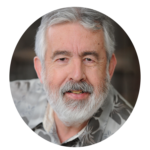
Alan E. Ramos: In 1976, I returned to college. I needed a Humanities credit and signed up for an acting class. I immediately found my outlet for artistic expression. In 1978, I founded the California Conservatory Theater and began producing theatre. Ironically, I started the theater company so I wouldn’t have to audition. The reality: I only appeared in one play that I produced (and had to audition for the part).
Mika S. Domingo: I grew up immersed in music. My parents believed in the importance of integrating music, dance, and drama in our education. They enrolled us in various classes and hired private coaches for piano, voice, and dance. My brother started winning singing competitions and I wanted to be just like him, so I worked hard on developing my style and won a few local competitions. By the age of 9, I was a finalist at a televised singing competition in the Philippines, like The Voice. My parents kept up with our voice training even after our move to the U.S. I attended workshops through the SF Conservatory of Music and Asian American Theatre Company. I sang in musicals throughout high school and undergrad. I sang at weddings, parties, festivals, and awesome venues such as the Cowell Theatre, Zellerbach Hall, the Bill Graham Theatre and Yerba Buena Gardens in SF. I performed regularly with the Young Filipino Entertainers Club, Teatro Ng Tanan, and for a few years, with the Young Inspiration Gospel Choir.
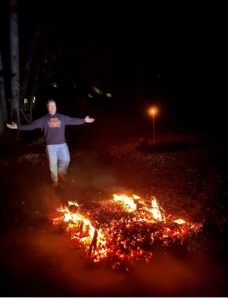 Michael Primus discovered firewalking, an ancient dance-like ritual that he loves.
Michael Primus discovered firewalking, an ancient dance-like ritual that he loves.
Michael Primus: My wife and I were watching a TV show on bizarre rituals, which included a segment on firewalking. It sounded strange and cool, yet it drew me in. Searching for a local opportunity, I found The Firewalking Center in Sonora. I was nervous, looking at the confirmation screen for my order. I said to myself: “You only live once,” and clicked the button. My first three walks were part of a weekend training in December 2021.
Deborah Jo Sandler: I have been musical all my life. As a child, I listened to music constantly, took piano, attended musicals and concerts, and watched my mom performing folk music. Music was everywhere. I learned folk instruments, performed, and majored in Folklore, getting college credit for playing in an Irish band. I sing in two choirs, am learning jazz harmonies, and singing a lot.
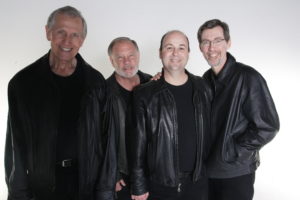 Kent Parr, pictured right, with HouseBlend a cappella quartet. Left to right Jim McGuire, Doug Emigh and Bill DeGarmo.
Kent Parr, pictured right, with HouseBlend a cappella quartet. Left to right Jim McGuire, Doug Emigh and Bill DeGarmo.
Kent C. Parr: I played the trombone since the 8th grade after being impressed by a trombone player in a Dixieland band. I switched to vocals in the late 1990’s.
What came first for you: the law or the art?
MP: I have been practicing law since 1992 but didn’t discover firewalking until 2021.
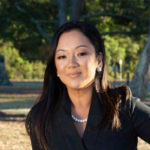
MSD: I was only 3-4 when I discovered my passion for music. One of my fondest memories was being cast in the production of “Kin,” a play that dealt with issues relating to race, culture, and identity. I was the youngest in the cast, so it was a real treat to work with seasoned actors.
HLM: For me, it was the Lego bricks. I was building as long as I can remember. I was building with bricks long before my interest in the law.
KCP: I grew up surrounded by lawyers (I’m the fourth generation) and by a wide variety of musical talent within my family. I grew up with them both.
DJS: The art came first – I didn’t even think about being a lawyer until I was in my late 20’s.
AER: The law came much later in my life. I didn’t start law school until I was 49.
What inspires you?
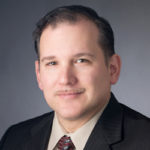
HLM: I build what I’m interested in. Ever since I was kid, I loved spaceships and rockets, robots and “mechs.” So that’s probably my biggest interest. It’s just cool and fun to build different spaceships and Japanese anime robots and transformers. I’ve certainly been interested in architecture. And if you like to build Legos, then obviously, you have got to build a castle. In 2012, when a lot of people were expecting the world to end based on the “Mayan Calendar,” I built a Mayan temple with the giant asteroid coming in, destroying the world, with tourists running from the temple as the meteor comes down.
MSD: I find much inspiration in my daily life. As a lawyer, I’m inspired by my ability to help resolve conflict. As a trusts and estates professor, seeing my students apply critical thinking skills to their work inspires me. As an artist, I’m inspired by how music can empower and unite human beings regardless of background and history. The voice is a very powerful instrument. It can help facilitate change. With the right message, it can unite and empower.
DJS: I love whatever music touches my heart, which is all of it. My inspiration comes from people who sing with true emotion.
AER: Passion. I have a great appreciation for passionate people, particularly those who pursue their passions.
What drew you to your medium of expression?
DJS: Once I had kids, it was easier to sing than to play instruments. As I sang more, I realized that singing is where my real joy in music comes from.
AER: I didn’t have the ability to paint, play an instrument or write a book. However, I found that I could be an actor – it was something that I could do that brought me joy.
KCP: I became intrigued with the idea of the human voice taking the place of the various parts that musical instruments might otherwise be playing. Our a capella band, HouseBlend, was my laboratory for experimenting with that concept.
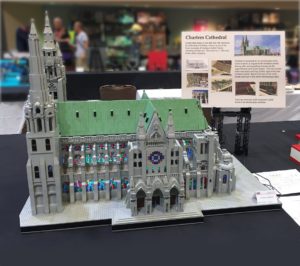 Judge Leonard Marquez’s Lego creation of Chartres Cathedral, complete with stained glass windows.
Judge Leonard Marquez’s Lego creation of Chartres Cathedral, complete with stained glass windows.
HLM: My art grew out of my collection of bricks, but Lego makes so many different parts, the possibilities are endless. They make parts to enable robotics. I used transparent colored bricks to build stained glass cathedral windows. I built a cave for a dragon with light-up gold bricks. You can build anything and everything and there is a huge community supporting you for finding a missing piece.
MP: Firewalking sounded like a crazy, scary thing but also something that has been done around the world for decades, maybe centuries. I wanted to try it.
MSD: Music in general has intrinsic value for our biological system. Everyone has a bit of music in their heart and brain, so everyone can relate to it. One does not need to have a high level of music training or knowledge to appreciate it, so for me, it’s a powerful tool to relate and connect with everyone.
How much time do you spend in pursuing your art in addition to being a lawyer? And how do you find the time?
MSD: These days, my focus has been on my practice and community service. I now sing only on occasion. A couple of years ago, however, I started working with a coach again on producing a compilation of my mom’s favorite songs as a tribute to her (she passed away in 2017).
DJS: I spend many hours each week singing: rehearsals, practice sessions, classes, and learning new songs. I find the time to sing because singing is my passion.
HLM: Well, I think that’s the challenge for everybody, no matter what you’re into, but you can and should do it. I think people need to find ways to make sure that the law doesn’t consume their entire lives. Most people have hobbies or interests that they pursue, and I believe it’s important to carve out time for those. If it’s something you find relaxing, it becomes your getaway thing, then you’ll find time to do it. I certainly do. I’ll spend an hour or half-hour in the evenings building. Rather than spend an hour watching TV, I would sit in my Lego space and work on my latest build.
MP: Opportunities for firewalking are limited and usually in the winter in California due to fire danger. Needless to say, I spend far more time at the office.
KCP: With HouseBlend, we usually rehearsed twice a week. We always made it a point to end each rehearsal with a small party, which undoubtedly helped keep the group together for 21 years. But the arrangements I wrote for the group were quite time-consuming.
AER: I am now retired from both endeavors. When I was practicing law, I had no time or energy for acting and was only able to pursue acting again after I left the law.
Do you find that your art benefits you as a lawyer? If so, how?
HLM: Yes, I think it does because if you are a balanced, relaxed, happy individual, it spills over into your profession, right? Having a way of destressing and decompressing helps us lawyers because we have such a stressful occupation. Also, as lawyers, we are working in abstractions, words and rights, remedies, decisions, et cetera. It is very important work, but very abstract. It’s nice to look up at the end of the project and say, I built this tangible thing.
MSD: Oh, absolutely. The rigorous training I’ve had in theatre and music really helped shaped who I am today. Having a strong work ethic, willingness to learn, and ability to adapt are non-negotiable. Having a passion for music helped me manage my time better so I could allocate some for training and performance. Performing also helped to hone my people-skills. I developed that emotional intelligence through my art; I apply it daily in my law practice.
KCP: HouseBlend performed countless a capella shows before large and small audiences. It helped build confidence for public speaking, although stage fright never fully goes away.
MP: Firewalking is empowering and communal. The communal element was unexpected. Turns out people bond in overcoming fears together.
AER: I always treated the courtroom as a stage and felt very comfortable there. As an actor, I never went on stage unprepared. Similarly, I never appeared in court unprepared. In law, as on the stage, unforeseen challenges would present themselves. You must rely on your preparation; only then can you effectively improvise to meet the unexpected.
DJS: I agree with Alan that appearing in Court is performative. I also focus on songs when I am nervous about court.
Is your internal critic harsher (or more lenient) with your creative or with your professional work? How so?
AER: Over time, I developed the ability to critique my work as objectively as possible. The goal was not to beat myself up, but rather to improve myself.
MSD: My inner critic is equally harsh with my creative and professional work. Just because I’m not getting paid to sing, it does not mean I approach it with any less preparation and focused intensity.
MP: I am an easy-going person, and my internal critic plays a minor role in my life, professional and otherwise. That said, I would have disappointed myself if I got to the fire and did not walk.
DJS: My internal critic is quite active in both areas. I’m probably harsher on myself as a lawyer because the stakes are higher. If I sing a bad note, nobody’s losing their rights.
If money were no object, would you quit your day job to pursue your art? Why or why not?
MSD: No. My mother taught me that the quality of my life is determined by the quality of my contribution. I absolutely love what I do and feel I can contribute more to society by practicing law and teaching. I also dislike the unpredictability of showbusiness.
HLM: I would have a hard time turning down a life of building Lego full time. I love what I do, but yeah… It would be hard to imagine a better existence than just indulging in Lego building.
AER: I actually did this (even though money was an object, as it always is). I determined that if I wanted to see if I could make it as an actor, I would have to fully commit to the effort. I did have some success (35 shoots, including short films, a co-starring role in a network series, and a featured role in a national commercial).
DJS: I thought seriously of dropping out of law school to sing professionally, as I was getting paid gigs, but decided I needed stability. I will sing a lot more when I’m retired.
Do you have any advice to the aspiring artists among us?
HLM: We get so busy and stressed about different things. But carve out the time to pursue your art and let it de-stress and rejuvenate you. You know, that brief will still be waiting for you when you come back to it.
KCP: I echo the sentiment. As my father told me, “You must control the practice of law, don’t let it control you.”
MSD: Set realistic expectations. Be authentic as it will bring out your best work. Mentors and coaches are invaluable, but you must stay true to your own form.
AER: For aspiring actors in particular: you need a strong sense of self. This statistic may be illustrative: for every major television role (particularly guest stars and co-stars) there are 2,000 to 3,000 submissions and only one person gets the role. The rest are rejected, and it may have nothing to do with talent, but some other factor in the production.
DJS: My advice to other artists: do it because you love it.